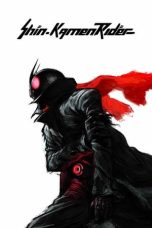- Source: Confessions of a Mask
Confessions of a Mask (仮面の告白, Kamen no Kokuhaku) is the second novel by Japanese author Yukio Mishima. First published on 5 July 1949 by Kawade Shobō, it launched him to national fame though he was only in his early twenties. Some have posited that Mishima's similarities to the main character of the novel come from the character acting as a stand-in for Mishima's own autobiographical story.
The novel is divided into four long chapters, and is written using the first-person narrative mode.
The book's epigraph is a lengthy quote from The Brothers Karamazov by Dostoevsky ("The Penance of a Fervent Heart—Poem" in Part 3, Book 3).
Confessions of a Mask was translated into English by Meredith Weatherby for New Directions in 1958.
Background and composition
After resigning from the Ministry of Finance in September 1948, Mishima planned to begin work on a novel at the request of his publisher, Kawade Shobō, though it took him two months to decide exactly what form it should take. Writing to editor Sakamoto Kazuki, Mishima declared:"This next novel will be my first I-novel ever; of course, it won't be an I-novel of the Literary Establishment sort, but it will be an attempt to vivisect myself in which I will turn on myself the blade of psychological analysis that I have honed for the hypothetical figure so far. I will aim for as much scientific accuracy as I can; I will try to be Baudelaire's so-called 'victim and executioner.'"
Mishima would later compare his Confessions to Vita Sexualis by Mori Ōgai and Armance by Stendhal.
Plot
The protagonist is referred to in the story as Kochan, which is the diminutive of the author's real name: Kimitake (公威). Being raised during Japan's era of right-wing militarism and Imperialism, he struggles from a very early age to fit into society. Like Mishima, Kochan was born with a less-than-ideal body in terms of physical fitness and robustness, and throughout the first half of the book (which generally details Kochan's childhood) struggles intensely to fit into Japanese society. A weak homosexual, Kochan is kept away from boys his own age as he is raised, and is thus not exposed to the norm. His isolation likely led to his future fascinations and fantasies of death, violence, and same-sex intercourse.
Kochan is homosexual, and in the context of Imperial Japan he struggles to keep it to himself. In the early portion of the novel, Kochan does not yet openly admit that he is attracted to men, but indeed professes that he admires masculinity and strength while having no interest in women. This includes an admiration for Roman sculptures and statues of men in dynamic physical positions. Some have argued that the admiration of masculinity is autobiographical of Mishima, himself having worked hard through a naturally weak body to become stronger and a male model.
In the first chapter of the book, Kochan recalls a memory of a picture book from when he was four years old. Even at that young age, Kochan approached a single picture of a heroic-looking European knight on horseback almost as pornography, gazing at it longingly and hiding it away, embarrassed, when others come to see what he is doing. When his nurse tells him that the knight is actually Joan of Arc, Kochan, wanting the knight to be a paragon of manliness, is immediately and forever put off by the picture, annoyed that a woman would dress in man's clothing.
The word "mask" comes from how Kochan develops his own false personality that he uses to present himself to the world. Early on, as he develops a fascination with his friend Omi's body during puberty, he believes that everybody around him is also hiding their true feelings from each other, everybody participating in a "reluctant masquerade". As he grows up, he tries to fall in love with a girl named Sonoko, but is continuously tormented by his latent homosexual urges, and is unable to ever truly love her.
Reception
The initial reception of Confessions of a Mask in the English-speaking world was somewhat mixed, but ultimately positive; over time this autobiographical novel came to be seen as one of Mishima's most important works.
An anonymous reviewer for Kirkus Reviews opines: "As a novel there is very little to recommend this painful account of retarded sexuality, but as a testament to the current enthusiasm with which the Japanese have embraced Western literary traditions of the last forty years at the expense of their own heritage, Confessions of a Mask makes a grim and forceful impression."
In the New York Times, Ben Ray Redman writes: "This book will increase American awareness of [Mishima's] skill; but it will also, I imagine, arouse in many readers as much distaste as respect . . . In Confessions of a Mask a literary artist of delicate sensibility and startling candor, has chosen to write for the few rather than the many."
Writing for the Japan Times, Iain Maloney notes that: "In many ways Confessions is the key text to understanding Mishima's later novels. In it, he explores the poles of his psyche, his homosexuality and his romantic/erotic attraction to warfare and combat. It is a scathing, unflinching examination of the darkness at the far corners of the human mind."
Christopher Isherwood, as quoted in The Mattachine Review, proclaimed, after reading the novel: "Here is a Japanese Gide."
References
External links
Confessions of a Mask at the Internet Archive
Kata Kunci Pencarian:
- Yukio Mishima
- Alfred Abel
- Max Mack
- Paul Otto
- Last Period
- George E. Stone
- Edwin Stanley
- Anthony Hopkins
- Martin Luther
- Daftar buku Penguin Classics
- Confessions of a Mask
- Yukio Mishima
- Mishima: A Life in Four Chapters
- Thirst for Love
- Forbidden Colors
- The Temple of the Golden Pavilion
- Sun and Steel (essay)
- The Sailor Who Fell from Grace with the Sea
- Saint Sebastian
- The Sea of Fertility
Scream (2022)
Watchmen (2009)
No More Posts Available.
No more pages to load.














